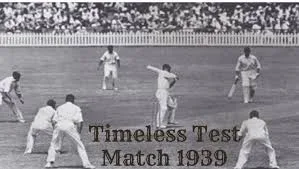James Anderson, one of England’s most iconic fast bowlers, recently opened up about the bittersweet end to his illustrious Test career. At 42, Anderson’s retirement came as a shock to many cricket fans worldwide, especially since the veteran pacer insists he was nowhere near ready to hang up his boots.
In a candid and emotional confession, Anderson revealed that his decision to retire was not entirely his own — it was a move forced upon him by the England team management.
Table of Contents
The Unexpected End to a Glorious Career

James Anderson’s career spanned over two decades, making him one of the most experienced and successful fast bowlers in cricket history. With 186 Test matches under his belt, he holds the record for the second-most Test appearances by any player.
His wicket tally places him third on the all-time list, boasting 32 four-wicket hauls, 5 five-wicket hauls, and 3 ten-wicket hauls. Anderson’s longevity and skill have made him a legend not only in England but across the cricketing world.
Yet, despite this remarkable legacy, Anderson’s retirement last year after the first Test against the West Indies was not a decision he made willingly. Speaking to The Independent, Anderson described the moment as “pretty gutting,” revealing that the management had decided to move on without him, leaving him with no choice but to accept the decision.
“I’m still a bit mixed on it. It’s one of those things that was out of my hands. They made the decision to move away from having me in the team. That was pretty gutting at the time. I’d been preparing before my last Test match for the next six, 12, 18 months of Test cricket; I wasn’t anywhere near retirement in my head. I felt I still had that want and hunger to play, to do the hard yards, the training, the skill work,” Anderson shared.
This revelation sheds light on the emotional turmoil Anderson faced, highlighting the often unseen struggles athletes endure when their careers are cut short by decisions beyond their control.
The Role of England’s Management and Brendon McCullum
Reports surfaced in May 2024 suggesting that England’s head coach, Brendon McCullum, played a pivotal role in Anderson’s forced retirement.
According to The Guardian, McCullum personally informed Anderson during a golf outing in the UK that it was time for him to step aside. The rationale was clear: England needed to focus on building a future team, investing in younger talent to secure long-term success.
This decision, while strategic from a team management perspective, was undoubtedly difficult for Anderson, who had been mentally and physically preparing to continue his Test career. The news came as a blow to a player who had consistently demonstrated his fitness, skill, and passion for the game.
McCullum’s approach reflects a broader trend in international cricket, where teams are increasingly prioritising youth development to remain competitive in the evolving landscape of the sport. However, the human side of such decisions often gets overlooked, as seen in Anderson’s heartfelt admission.
Anderson’s Legacy: More Than Just Numbers
James Anderson’s impact on cricket goes beyond statistics. He has been a mentor to younger players, some of whom debuted internationally while he was still active, such as Rehan Ahmed and Shoaib Bashir. His professionalism, work ethic, and dedication have set a benchmark for aspiring cricketers.
Anderson’s career is also notable for his adaptability. Over 21 years, he evolved his bowling style to remain effective against changing batting techniques and conditions. His ability to swing the ball both ways and his relentless pursuit of excellence made him a nightmare for batsmen worldwide.
His records speak volumes: Anderson is the most-capped pacer in Test cricket history and has bowled the fourth most deliveries in the format. These achievements underscore not only his skill but also his remarkable fitness and commitment to maintaining peak performance over two decades.
Moreover, Anderson’s influence extends off the field. His leadership and experience have been invaluable in the dressing room, helping to nurture England’s next generation of fast bowlers. His presence was a calming and guiding force, especially during challenging series.
What Does Anderson’s Retirement Mean for England Cricket?

The departure of a player like Anderson leaves a significant void in England’s bowling attack. While the team management’s focus on youth is understandable, losing a seasoned campaigner with such experience can impact team dynamics and performance, especially in high-pressure Test matches.
England’s cricketing future now rests on the shoulders of emerging fast bowlers who must rise to the challenge of filling Anderson’s shoes. The transition phase will be critical, and the lessons from Anderson’s career will undoubtedly serve as a guiding light for the next generation.
The challenge for England will be balancing the need to develop young talent while maintaining competitiveness at the highest level. Anderson’s forced retirement highlights the delicate nature of this balance and the tough decisions teams must make.
Reflecting on a Forced Farewell
James Anderson’s story is a poignant reminder of the harsh realities professional athletes sometimes face. Despite personal readiness and passion, external decisions can abruptly alter the course of a career. Anderson’s “gutting” confession humanizes the often-glamorised world of international cricket, showing the emotional toll such decisions can take.
For fans, Anderson’s retirement marks the end of an era. For Anderson himself, it is a chapter closed not by choice but by circumstance. Yet, his legacy remains intact — a testament to resilience, skill, and unwavering commitment to the sport he loves.
His experience also opens up a broader conversation about how sports organisations manage veteran players and the importance of transparent communication and support during such transitions.
Celebrating James Anderson’s Unmatched Contribution
As cricket enthusiasts, it’s essential to celebrate James Anderson not just for his records but for his spirit and dedication. His forced retirement may have been a tough pill to swallow, but his influence on English cricket will endure for generations.
Whether you’re a die-hard England supporter or a lover of cricket history, Anderson’s journey offers valuable lessons about perseverance, professionalism, and the bittersweet nature of sports careers.
His story reminds us that behind every statistic and record is a human being with dreams, emotions, and a deep love for the game. Anderson’s career, marked by highs and lows, triumphs and challenges, is a shining example of what it means to be a true sportsman.
Final Thoughts: The Legacy Lives On
James Anderson’s forced retirement is a chapter that may have closed prematurely, but his legacy is far from over. His contributions to cricket, both on and off the field, have left an indelible mark on the sport.

As England looks to the future, the lessons from Anderson’s career will inspire the next generation of cricketers to strive for excellence with the same passion and dedication.
For fans and cricket lovers worldwide, Anderson’s story is a powerful reminder of the human side of sports — the sacrifices, the heartbreaks, and the enduring spirit that defines true champions.
FAQ:-
What was Jimmy Anderson’s reaction to retirement?
James Anderson ‘at peace’ with retirement despite bowling ‘as well as ever’ James Anderson says he is “at peace” with his impending retirement from Test cricket, despite admitting that he didn’t have much say in the decision and feeling that he is “still bowling as well as I ever have”.
Who told Anderson to retire?
In the end, Anderson writes, all he could say was “OK” and try to process the news. How, he wrote, could it all end like this? Anderson was given the option by McCullum, Key and Stokes to play one more Test or retire immediately.








